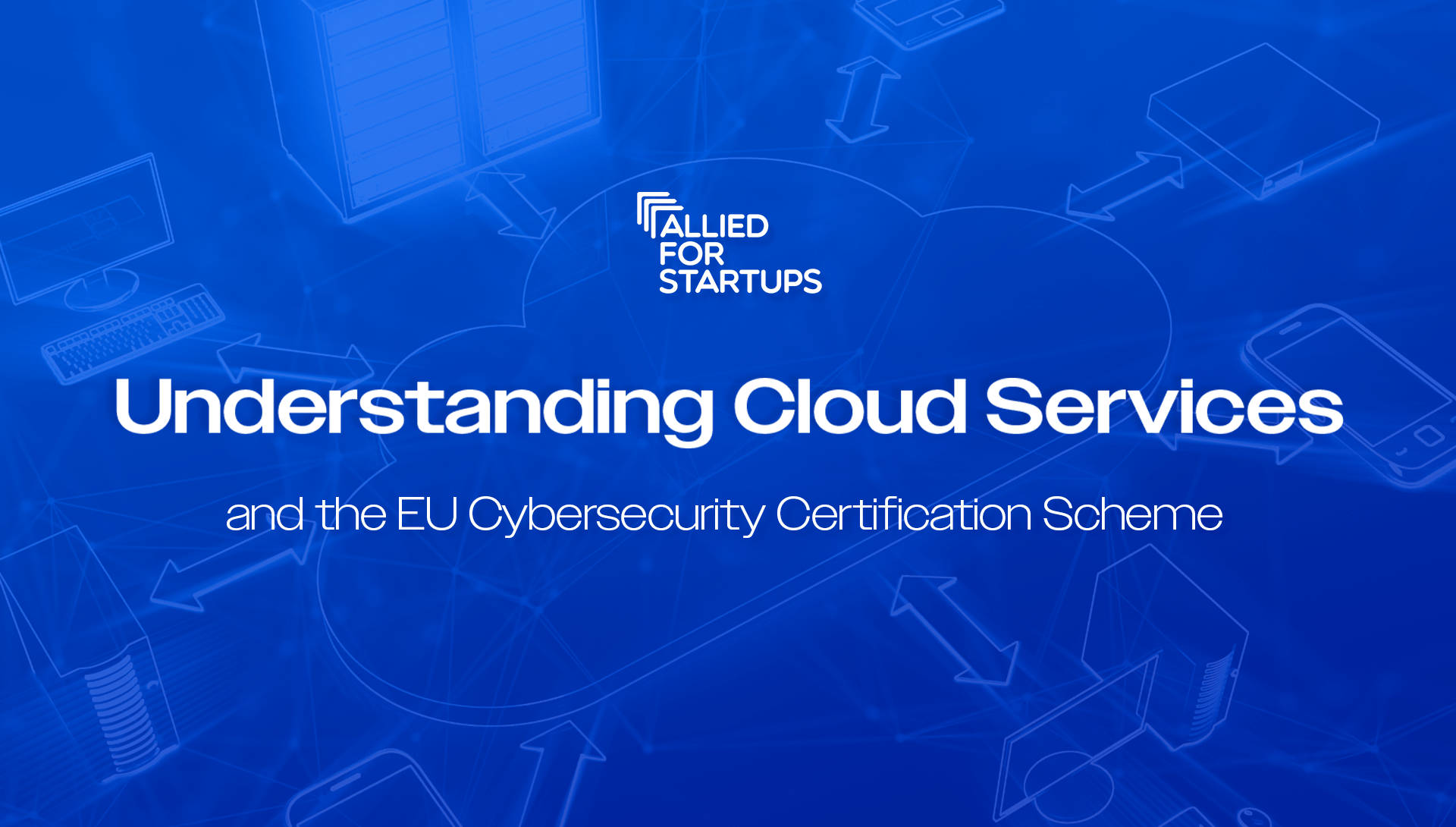Understanding Cloud Services and the EU Cybersecurity Certification Scheme (EUCS)
Cloud services have become integral to modern business operations, providing on-demand access to computing resources such as storage, processing power, and software applications over the internet. These services offer scalability, flexibility, and cost-efficiency, allowing businesses to grow and adapt without the need for substantial upfront investment in IT infrastructure.
The European Cybersecurity Certification Scheme for Cloud Services (EUCS) is an initiative aimed at enhancing the security of cloud services within the European Union. It seeks to establish a certification framework to ensure that cloud service providers adhere to rigorous cybersecurity standards, thereby bolstering trust and security in cloud computing across Europe.
The Startup Perspective on the EUCS
In November 2023, the startup ecosystem voiced significant concerns regarding the EUCS through the joint statement Allied For Startups released together with its members. While the startup community acknowledges the importance of robust cybersecurity measures, it is important to recognise that making the EUCS mandatory could impose severe constraints on startups’ ability to scale and innovate. As startups are vital drivers of innovation and economic growth, such a measure would have negative implications on the EU’s innovation capacities and, by extension, challenge the bloc’s economic growth. As startups are committed to contributing to a competitive, resilient, and innovative cloud ecosystem in Europe, it is important for startups that the EUCS does not include sovereignty requirements as these would potentially exclude the products of some cloud suppliers from the market, presenting startups with less choice and potentially higher costs.
Challenges Posed by Mandatory EUCS for Startups
- Increased compliance costs: Startups typically operate with limited financial resources. The cost of compliance with stringent certification requirements could be prohibitive, diverting funds away from critical areas such as product development, marketing, and talent acquisition. This financial strain could stifle the growth of young companies that are already operating on tight budgets.
- Complexity and administrative burden: Navigating the complex landscape of certification processes requires substantial administrative effort and expertise. For startups, which often have small teams, this can be an overwhelming burden. The time and resources spent on achieving certification could detract from their core mission of innovation and market disruption.
- Barriers to market entry and scalability: The stringent requirements of the EUCS could create high barriers to entry for new startups. Additionally, for those looking to expand rapidly across different markets, the need to comply with a patchwork of local regulations could hinder their ability to scale efficiently. This fragmentation runs counter to the principle of the Digital Single Market, which aims to create a unified digital space in Europe.
- Innovation stifled: Startups are known for their agility and ability to innovate quickly. Mandatory certification could impose rigid structures that inhibit creative problem-solving and rapid iteration. The startup community fears that this could lead to a homogenisation of cloud services, where innovation is hampered by the need to conform to prescriptive standards.
Startups Call for a Balanced Approach
The startup ecosystem advocates for a balanced approach to cybersecurity certification. For startups, it is important that the EUCS remains a voluntary scheme, at least for startups and small enterprises, allowing them the flexibility to choose certification and providers that can offer the best and most affordable products based on their specific needs and capabilities. This would enable startups to focus on growth and innovation while still encouraging the adoption of best practices in cybersecurity through market-driven incentives.
Conclusion
While the EUCS aims to enhance the security and trustworthiness of cloud services in Europe, making it mandatory poses significant challenges for startups. Increased compliance costs, administrative burdens, barriers to market entry, and stifled innovation are key concerns that could hinder the growth and scalability of young companies. A voluntary approach to certification, as advocated by the startup community, would strike a better balance, fostering a secure cloud ecosystem without impeding the dynamism and creativity that startups bring to the digital economy. By supporting a more flexible framework, the EU can ensure that its cybersecurity goals are met while continuing to nurture the innovative spirit that drives progress and competitiveness in the global market.

